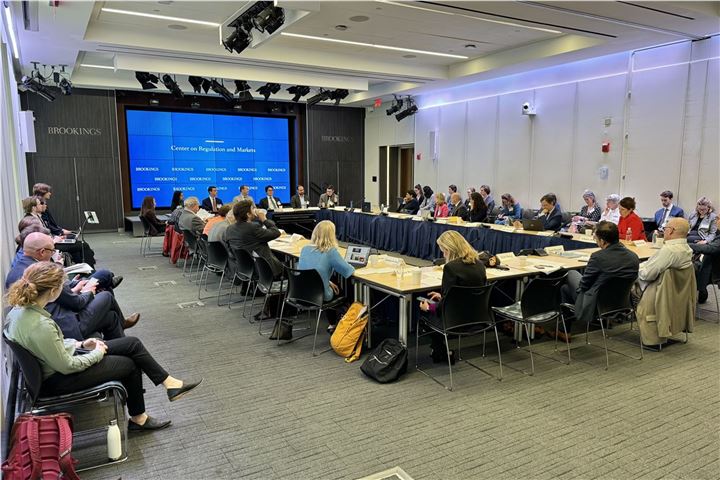Purpose
- Investigates the causes of economic imbalances.
- Explores and develops market-based solutions.
Summary
Project will explore the feasibility of a Carbon Border Adjustment Mechanism in the U.S.

April 2024 Workshop
Description
There is growing bipartisan momentum in the U.S. for implementing a carbon tariff to address the unequal carbon emissions intensities between U.S. industries and their counterparts in other countries (e.g., China). Moreover, as the EU is moving fully ahead in pursuing a carbon border adjustment mechanism (CBAM), the U.S. risks being left behind without new policy action that would address different emissions intensities between domestically produced goods and imports.
This project focuses on how such a carbon tariff could feasibly be implemented in the U.S.. A special emphasis lies on the economic, legislative, administrative, technical, and geopolitical considerations and on how climate goals can be aligned with national security goals.
We are finalizing a paper on how the U.S. could implement a carbon tariff (forthcoming).
Purpose
The project will particularly focus on how a CBAM would be an efficient way to address the market failure caused by greenhouse gas emissions (i.e., find a remedy for impaired markets). Climate change is one of the most important challenges mankind is facing and it is therefore important to find ways to address it through regulation and harnessing the power of markets.
Scope
The scope of the project will be national.
Amount Approved$80,000.00
on 6/8/2023
(Check sent: 6/21/2023)